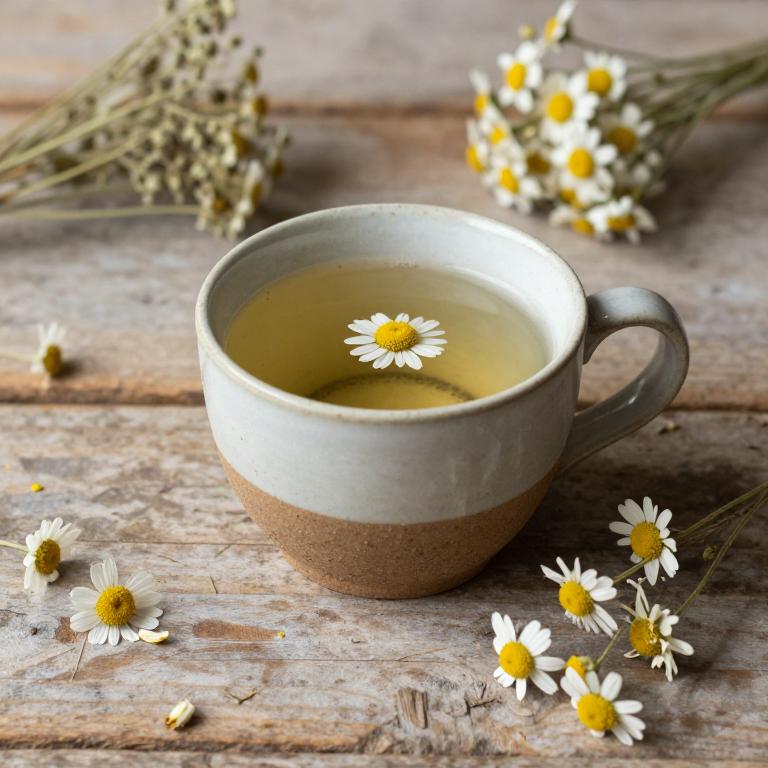10 Best Herbal Teas For Dry Mouth

Herbal teas can be a natural and soothing remedy for dry mouth, offering hydration and relief without the use of artificial ingredients.
Teas made from herbs like licorice root, chamomile, and peppermint are particularly effective, as they can stimulate saliva production and soothe oral discomfort. These herbal infusions are generally safe for most people and can be enjoyed warm or cold, depending on personal preference. Additionally, they often contain anti-inflammatory and antioxidant properties that contribute to overall oral health.
Incorporating herbal teas into a daily routine can provide a gentle, holistic approach to managing dry mouth symptoms.
Table of Contents
- 1. Salvia (Salvia officinalis)
- 2. Peppermint (Mentha piperita)
- 3. Echinacea (Echinacea purpurea)
- 4. Stinging nettle (Urtica dioica)
- 5. Licorice (Glycyrrhiza glabra)
- 6. Rosemary (Rosmarinus officinalis)
- 7. Fennel (Foeniculum vulgare)
- 8. Ginger (Zingiber officinale)
- 9. German chamomile (Chamomilla recutita)
- 10. Heartworts (Leonurus cardiaca)
1. Salvia (Salvia officinalis)

Salvia officinalis, commonly known as sage, is a herbal plant often used in teas to alleviate symptoms of dry mouth.
The tea is made by steeping dried sage leaves in hot water, releasing its aromatic and therapeutic properties. Sage contains compounds such as thujone and rosmarinic acid, which may help reduce oral secretions and soothe irritation in the mouth. It is particularly beneficial for individuals experiencing dry mouth due to aging, medication side effects, or dehydration.
However, it is important to consult a healthcare provider before using sage tea, especially for those with certain medical conditions or taking medications.
2. Peppermint (Mentha piperita)

Mentha piperita, commonly known as peppermint, is a popular herbal ingredient used in teas to help alleviate symptoms of dry mouth.
The refreshing and cooling properties of peppermint stimulate saliva production, making it an effective natural remedy for individuals experiencing dry mouth, also known as xerostomia. Peppermint tea can be enjoyed either hot or cold, offering a soothing and invigorating effect that helps moisturize the mouth and throat. Its mild, aromatic flavor makes it a pleasant and easily palatable option for regular consumption.
When consumed in moderation, peppermint herbal tea is generally safe and can be a beneficial addition to a daily routine for maintaining oral hydration.
3. Echinacea (Echinacea purpurea)

Echinacea purpurea, commonly known as purple coneflower, is a popular herbal remedy often used to support immune health.
While it is more widely recognized for its potential to reduce the duration of colds, echinacea purpurea herbal tea may also help alleviate symptoms of dry mouth by promoting saliva production. The tea contains compounds that may stimulate the salivary glands, helping to moisten the mouth and ease discomfort. However, it is important to note that echinacea can interact with certain medications and may not be suitable for everyone, especially those with autoimmune disorders.
As with any herbal remedy, it is best to consult a healthcare professional before incorporating echinacea purpurea into your routine for dry mouth relief.
4. Stinging nettle (Urtica dioica)

Urtica dioica, commonly known as stinging nettle, is a herbal plant that has been used for centuries in traditional medicine for its various health benefits.
When prepared as a tea, stinging nettle can help alleviate dry mouth by stimulating saliva production due to its high mineral content, including potassium and magnesium. The tea is also rich in antioxidants and anti-inflammatory compounds that support overall oral health. It is important to note that while stinging nettle tea is generally safe for most people, it should be consumed in moderation and may interact with certain medications.
Incorporating urtica dioica tea into a daily routine can be a natural and effective way to manage dry mouth symptoms.
5. Licorice (Glycyrrhiza glabra)

Glycyrrhiza glabra, commonly known as licorice root, is a popular herbal ingredient used in teas to alleviate symptoms of dry mouth.
This herb contains glycyrrhizin, a compound that has mild expectorant and anti-inflammatory properties, which can help soothe irritated oral tissues and increase saliva production. Licorice root tea is often recommended for its soothing effect on the throat and mouth, making it a natural remedy for individuals experiencing dryness due to dehydration, medications, or medical conditions. However, long-term use of licorice root should be approached with caution, as excessive consumption may lead to side effects such as high blood pressure or fluid retention.
When used in moderation, licorice root tea can be a comforting and effective option for managing dry mouth symptoms.
6. Rosemary (Rosmarinus officinalis)

Rosmarinus officinalis, commonly known as rosemary, is a versatile herb often used in herbal teas to alleviate symptoms of dry mouth.
This aromatic plant contains compounds like rosmarinic acid and essential oils that can stimulate saliva production and soothe oral discomfort. Rosemary tea is easy to prepare by steeping fresh or dried leaves in hot water, making it a convenient home remedy. Its refreshing flavor and potential anti-inflammatory properties may also promote overall oral health.
Regular consumption of rosemary herbal tea can provide natural relief for individuals experiencing persistent dry mouth due to aging, medication, or dehydration.
7. Fennel (Foeniculum vulgare)

Foeniculum vulgare, commonly known as fennel, is a herbal tea that can be beneficial for individuals experiencing dry mouth due to its mild expectorant and soothing properties.
The tea is derived from the dried seeds of the fennel plant and is known for its warm, licorice-like flavor, which can be comforting and pleasant to consume. It helps stimulate saliva production, thereby alleviating the discomfort of dry mouth by naturally moistening the oral cavity. Additionally, fennel tea may have antimicrobial properties that support oral health and reduce the risk of infections.
However, it is advisable to consult with a healthcare provider before using fennel tea, especially for those with existing medical conditions or taking medications.
8. Ginger (Zingiber officinale)

Zingiber officinale, commonly known as ginger, is a popular herbal ingredient used in teas to alleviate symptoms of dry mouth due to its natural expectorant and anti-inflammatory properties.
Ginger tea can stimulate saliva production, helping to moisten the mouth and reduce the discomfort associated with dryness. The warming and spicy flavor of ginger also provides a soothing effect on the throat and mouth, making it a comforting remedy for those experiencing dry mouth. This herbal tea is easy to prepare by steeping fresh or dried ginger root in hot water, and it can be enjoyed both hot and cold depending on personal preference.
Regular consumption of ginger tea may support overall oral health and provide relief for individuals suffering from chronic dry mouth conditions.
9. German chamomile (Chamomilla recutita)

Chamomilla recutita, commonly known as German chamomile, is a popular herbal remedy often used to alleviate symptoms of dry mouth due to its soothing and anti-inflammatory properties.
This herb contains compounds like apigenin, which may help stimulate saliva production and reduce oral discomfort. Chamomile tea is easy to prepare and can be consumed regularly to provide relief from dryness and irritation in the mouth. Its mild, calming flavor makes it a pleasant and accessible option for many individuals seeking natural relief.
However, it is advisable to consult a healthcare professional before using chamomile tea, especially for those with allergies or existing medical conditions.
10. Heartworts (Leonurus cardiaca)

Leonurus cardiaca, commonly known as heartwarming or redweed, is a traditional herbal remedy that has been used for centuries to support oral health and alleviate dry mouth.
This herb contains compounds that may stimulate saliva production, helping to moisten the mouth and reduce the discomfort associated with dryness. When brewed into a herbal tea, Leonurus cardiaca can provide a soothing and natural remedy for individuals experiencing dry mouth due to aging, medication, or environmental factors. Its mild, slightly sweet flavor makes it an enjoyable and palatable option for regular use.
However, it is advisable to consult with a healthcare professional before incorporating this herb into one's routine, especially for those with existing health conditions or taking other medications.